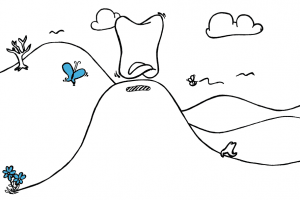Wisdom Teeth Extraction
Wise guy eh? Probably not…

Wisdom teeth are an annoying phenomenon that happens in most humans. According to anthropologists, the primitive human jaw was bigger and thus could allow for the extra tooth. However, as the human skull has become smaller, this extra molar has become more and more impacted!
Anyone over the age of 16 can develop wisdom teeth problems. It is very important to have your wisdom teeth scanned (by an OPG X-Ray), so you know exactly what they are up to.
Wisdom teeth often fall into three categories:
- Fully erupted Wisdom Teeth – These are generally ok to keep in your mouth and can act as functioning teeth. Cleaning these at home can however be somewhat difficult as they are so far back!
- Un-erupted Wisdom Teeth – If the wisdom teeth haven’t made any contact with the mouth, these can often be monitored and left alone asymptomatically. Un-erupted wisdom teeth can sometimes cause unexpected trouble so it is very important to monitor their health occasionally.
- Impacted Wisdom Teeth – Impacted wisdom teeth are the troublesome ones. They have tried to erupt into place, but due to poor angulation or insufficient space have become stuck! These are at very high risk of infection and can damage the neighbouring tooth. These often have to be removed.
Wisdom Teeth Removal Surgery
Straightforward wisdom teeth can be removed under local anaesthetic while you’re awake or with a mild sedative. Many though require twilight sedation or a general anaesthetic. The dentists at Dental on Flinders will advise you on how best to deal with your wisdom teeth.
Symptoms that may mean a wisdom tooth is affected:
- Pain at the back of the jaw
- Swelling at the back of the jaw
- Limitation in mouth opening
- Persistent bad taste or breath
- Persistent fevers
